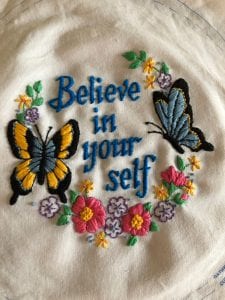Trina O’Quinn Expands on Her Tips for Moving Through Grief
By Trina O’Quinn for the NABBW

Trina O’Quinn
While trying to write my next article for you, I experienced writer’s block due to low motivation, probably brought on by my own grief. So I took some of my own advice and decided to reflect on my state of being through meditations on what I was feeling. (There is that “f” word again.)
Next, I reread my previous blogs. In doing this, I made the discovery that the tips I gave you for finding your way through grief were actually just the bullet points of larger concepts. I realized that to be more helpful, I really needed to offer you examples, or find you illustrations that were more specific.
So, now, as we move into September 2020, I am back again, to give you further detail on each of those grieving tips I gave you in my last post.
- Recognize it – This can be done by stating, “I am experiencing grief. Grief is the price I pay for Love and Loss.”
- Don’t Rush It – Grief takes time. There is not a time limit on how long it should take to let grief move through my life, or let the grief move through me. This is part of the complexity of grieving. Sometimes it moves me, and sometimes I can move it. Sometimes the best that I can do is learn to coexist with grief over the duration of my life.
- Don’t Judge Yourself —There are no good days or bad while I am moving through grief. There are only days, and each are 24 hours long. There are no negative or positive emotions, only emotions, i.e. Happy, Sad, Joy, Love, Fear, etc. I feel what I feel when I am feeling it. Those feelings do not make me as a person good or bad.
- Don’t Try To Be Your Old Self — Don’t try to be too busy, happy or efficient. Do what you can do where you can do it. This is who you are for now.
- Don’t Minimize It —One of the ways I minimize my own grief is to tell people, “I Am OK; I’m Fine” when I am not. When asked I tell them how I am that day. It changes from one minute to the next.
- Don’t Try To Control It — I try to retain control by trying to hold it all together, trying to manipulate what is going on outside of me in the real world. I give myself time to feel what I feel internally then function in the outer world.
- Pause — I take a breath. I am still and ask myself, “What is going on inside of me?”
- Reflect — I think seriously about what is going on inside my mind and body and journal about it if I can.
- Rest — I quiet my mind and body. This can be done by slowing down or sitting down. It is OK to take a nap.
 Recharge — I find ways to restore, replenish and replace my energy. This can be done by limiting my activity, taking a nap or maybe reading a book. (Personally, I find I can recharge myself with my favorite relaxing hobby, needlework.)
Recharge — I find ways to restore, replenish and replace my energy. This can be done by limiting my activity, taking a nap or maybe reading a book. (Personally, I find I can recharge myself with my favorite relaxing hobby, needlework.) - Resolve — I analyze what I would like to do differently. What difference will I make in my life? What can I do and what is out of my control?
- Be Curious — I try to be inquisitive. This is where I ask, “What can I learn from this and how can I use this learning? Why is this important? What are my losses?”
- Rituals— I create and acknowledge an activities that are done consistently in my daily life. Some examples are: journaling, meditating, going for a walk at the same time each day and praying.
- Connect or Disconnect with Others — I do this by going within and asking myself “Do I need to be alone or reach out to someone?” Then I follow through with whatever the answer turns out to be.
- Remember It Is OK, Not To Be OK — I have had a major loss, and it is ok not to know what to do, how I will cope or if I will feel good again. I will just not be the same and the loss will always be a loss.
Remember, these tips on trying to move through grief are just that: tips. If you find they don’t work for you, give them up.
But if they are working for you, continue to use them as a starting place, a diving board and/or a tool to help you swim through this process named grief.
Finally, please remember it is OK to be sad. You have lost something that you cared about and things will never be the same again.
Trina O’Quinn is an actively licensed (California License # LMFT27407) Marriage and Family Therapist. Entering the profession as an older adult, Trina was in private practice for 30 years. During her career she was a lecturer at California University Dominguez Hills in the Marital and Family Therapy Program, where she supervised many students and mentored many associates.
Now retired, Trina keeps busy enjoying needle arts, reading, journaling and writing, as well as singing with a women’s chorus, peer networking, volunteering at a senior living center and reconnecting with old friends.



Leave a Reply
You must be logged in to post a comment.